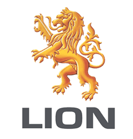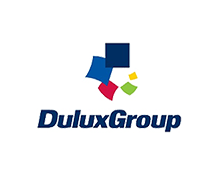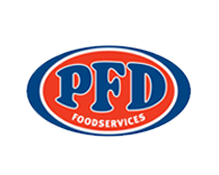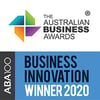Metaheuristics
Metaheuristics are a class of algorithms that are used to solve optimization problems.
Metaheuristics are a powerful tool for solving complex problems. They offer flexibility and robustness to the problem-solving process, enabling solutions that would otherwise be difficult or impossible to attain. This article will explore what metaheuristics are, how they work, and why they have become an integral part of modern problem solving.
Metaheuristics employ algorithms which enable computers to solve complicated problems with fewer iterations than traditional methods. These algorithms are designed in such a way as to maximise the efficiency of the search procedure while minimising its complexity. By using a combination of advanced techniques such as genetic algorithms, simulated annealing, tabu search, particle swarm optimisation, ant colony optimisation and more, metaheuristics can find optimal solutions to highly intractable problems faster and more reliably than existing methods could ever hope to achieve.
However, this power does not come without cost; implementing metaheuristic algorithms is time consuming and requires considerable knowledge about their underlying principles in order to make them effective. As such it is important for anyone considering using these tools understand both the strengths and limitations associated with each algorithm before making any decisions on implementation. The following article will provide deeper insight into the workings of metaheuristics so readers may better evaluate if they are suitable for their own needs.
What Is The Meaning Of Metaheuristics?
Metaheuristics are a class of optimisation algorithms that rely on meta-algorithmic techniques such as swarm intelligence, simulated annealing algorithm, and hill climbing to solve complex problems. These algorithms aim to find optimal or near-optimal solutions for hard mathematical optimisation problems by using heuristic search methods. They are used in various fields including engineering, logistics, scheduling, finance, economics and machine learning.
The main components of metaheuristics include objective functions which define the problem at hand; genetic operators which represent possible moves towards a better solution; and global optimisation techniques which guarantee convergence towards the optimum. Metaheuristic algorithms work by iteratively improving upon candidate solutions until a satisfactory solution is found. This process involves evaluating multiple feasible solutions based on their relative quality with respect to a given objective function. By utilising these heuristics, it is possible to reduce time complexity while still reaching good results.
One common example of a metaheuristic is particle swarm optimisation (PSO). This method uses population based search strategies inspired by social behaviour such as flocking birds or swarming bees to explore the search space efficiently in order to identify potential optima. It works by defining particles which move within the search space according to certain rules defined by the user. As each particle evaluates its current position against others in its local environment, they modify their own trajectory accordingly over successive iterations leading them closer toward an improved solution than before.
What Is Difference Between Heuristic And Metaheuristic?
Heuristics and metaheuristics are two related concepts in the field of artificial intelligence. A heuristic is an approach to problem-solving that relies on a rule of thumb or educated guess rather than employing a rigorous method for finding a solution. By contrast, metaheuristics are algorithms used to find near-optimal solutions to optimisation problems by using multiple strategies such as local search, genetic algorithms, simulated annealing, tabu search, particle swarm optimisation, differential evolution and ant colony optimisation.
Metaheuristics often employ sophisticated techniques such as multi-objective optimisation which takes into account criteria from more than one objective function when solving a problem. Additionally, some metaheuristics even use behaviour found in nature; for example the waggle dance performed by honey bees can be modelled within the context of ant colony optimisation and applied to computer science applications.
Metaheuristics offer several advantages over traditional methods including better scalability with large datasets and fewer constraints placed upon specific input parameters. Furthermore they are suitable for situations where there may not be an obvious optimal answer since they allow flexibility in how problems are solved while still aiming towards achieving an acceptable level of performance given certain objectives. In summary, metaheuristics provide powerful tools for tackling difficult real world problems without requiring prior knowledge about the data set or any special assumptions about its structure.
Why Do We Use Metaheuristics?
Metaheuristics are powerful optimisation algorithms used to solve complex problems of a non-deterministic nature. They work by using an intelligent search process that can find solutions without relying on the exact solution path. Metaheuristic algorithms have been used in many fields, ranging from transportation and logistics to finance and engineering.
A metaheuristic algorithm is an iterative method which searches for optima within a given problem space while utilising heuristics such as global exploration or local exploitation. This provides more flexibility than traditional methods such as gradient based optimisation techniques like the Nelder Mead algorithm. It also allows for population based metaheuristics such as the Variable Neighborhood Search (VNS) or Cuckoo Search (CS), which use multiple populations or individuals instead of one individual solution.
Metaheuristics offer several benefits to solving difficult problems:
- Efficiency: Metaheuristics often require fewer iterations than other approaches, making them quicker and more efficient when compared with traditional methods like Gradient Based Optimisation.
- Flexibility: Unlike traditional optimisation techniques, metaheuristics are capable of tackling complex problems with high dimensionality and uncertainty without needing prior knowledge about the problem domain.
- Robustness: The robustness of metaheuristics helps ensure better results even in cases where there may be changes in parameters over time, due to external influences or environment conditions.
- Versatility: With modern computing power, metaheuristic algorithms like Harmony Search Algorithm can easily be adapted to different kinds of optimisation problems.
By combining elements from both deterministic and stochastic processes, metaheuristics provide a powerful approach for solving complex problems that would otherwise be intractable using conventional methods alone. As they become increasingly accessible through open source software packages, these algorithms will likely see increasing usage in various industries for optimising existing systems or finding new solutions to challenging real world problems.
Is Machine Learning A Metaheuristic?
Metaheuristics are algorithms used to solve complex optimisation problems. A common example is the travelling salesman problem, where a set of cities must be visited in an optimal order. Machine learning has been applied in various ways to metaheuristic approaches, particularly evolutionary computation and soft computing techniques such as genetic algorithms and evolutionary algorithms.
Machine Learning can be considered a type of metaheuristic because it involves the use of computational methods for solving difficult optimization problems. However, it differs from traditional metaheuristics in that it does not necessarily rely on heuristic search or approximations; instead, it uses data-driven models which learn from existing data and make predictions about new data points. For example, operations research applications often require combinatorial optimization tasks, which may benefit from machine learning approaches rather than classical heuristic search strategies. Similarly, hyper-heuristics have been proposed as a way to combine multiple heuristics into one unified approach using machine learning techniques.
Overall, while Machine Learning and Metaheuristics both involve similar principles such as searching through large spaces of solutions to find optimal ones, they differ significantly in their underlying implementations. While metaheuristics apply predetermined rules derived from knowledge-based approaches and empirical studies, machine learning relies on data-driven models that can adapt to changing situations by using past experiences as guides for future decisions. Thus these two areas can complement each other when trying to solve hard optimisation problems but should be seen more like separate fields with distinct goals rather than branches of the same tree.
Is Hill Climbing A Metaheuristic?
Metaheuristics is a set of heuristic search based methods used for model-based optimisation problems. Hill climbing, as one type of metaheuristic, can be defined as an iterative algorithm that starts with a random solution and tries to find the best local optimum solution by selecting the most promising candidate from its neighbourhood. This process will continue until reaching the global optimal or the termination criterion is met.
During this procedure, population size and computational resources are two factors that need to be taken into consideration in order to obtain better performance results. The post selection method and race method are also employed frequently in hill climbing algorithms as they provide additional strategies for improving the quality of generated solutions. Sampling techniques may also be applied when solving complex optimisation problems by introducing new elements into each iteration cycle.
TIP: When applying hill climbing algorithms, it's important to have sufficient knowledge about the problem domain and appropriate parameters tuning so as to achieve satisfactory results within reasonable time constraints.
Conclusion
Metaheuristics are a powerful optimisation tool for solving complex problems. They offer flexibility and scalability to be applied to different types of problems, from low-level programming tasks to high-level AI applications. The main difference between heuristic and metaheuristic is that the former requires manual intervention while the latter is automated. This automation makes it possible to explore more possibilities in less time with greater accuracy than would be possible with manual efforts alone.
The use of metaheuristics has been critical in areas such as logistics planning, robotics, machine learning and artificial intelligence. These methods provide us with efficient solutions when traditional algorithms fail due to complexity or lack of information about the problem at hand. Metaheuristics have also made tremendous contributions towards improving decision making processes in various fields such as healthcare, finance and management science.
Although not all Machine Learning techniques can be classified as metaheuristics, hill climbing certainly belongs in this category. It is an iterative approach which involves searching for local optima within a given search space by continuously evaluating the current solution's fitness value relative to its neighbours. Hill climbing enables us to find good approximate solutions quickly without getting stuck in local minima - one of the major drawbacks of most other optimisation algorithms.
PREVIOUS NARROW AI GLOSSARY TERM
NEXT NARROW AI GLOSSARY TERM
Metaheuristics Definition
Exact match keyword: Metaheuristics N-Gram Classification: Meta heuristics, Heuristic optimization, metaheuristic algorithms Substring Matches: Meta, Heuristics Long-tail variations: "metaheuristic algorithms", "heuristic optimization techniques" Category: Computer Science, Mathematics Search Intent: Research, Solutions Keyword Associations: Algorithms, Optimization Techniques, Artificial Intelligence Semantic Relevance: Artificial Intelligence, Algorithms, Optimization Techniques Parent Category: Computer Science Subcategories: Algorithms, Optimization Techniques , Artificial Intelligence Synonyms : Algorithms, Optimization Techniques , Artificial Intelligence Similar Searches : Algorithms , Optimization Techniques , Artificial Intelligence Geographic Relevance : Global Audience Demographics : Students , Researchers , Business professionals Brand Mentions : Google TensorFlow , Amazon Sage Maker Industry-specific Data : Problem sets for machine learning algorithms Commonly Used Modifiers : "algorithm", "solution", "techniques" Topically Relevant Entities : Algorithms, Optimization Techniques , Artificial Intelligence , Problem sets for machine learning algorithms"Larry will be our digital expert that will enable our sales team and add that technological advantage that our competitors don't have."
Kerry Smith
CEO, PFD Foods
$1.6 billion in revenue 
"Lion is one of Australasia’s largest food and beverage companies, supplying various alcohol products to wholesalers and retailers, and running multiple and frequent trade promotions throughout the year. The creation of promotional plans is a complicated task that requires considerable expertise and effort, and is an area where improved decision-making has the potential to positively impact the sales growth of various Lion products and product categories. Given Complexica’s world-class prediction and optimisation capabilities, award-winning software applications, and significant customer base in the food and alcohol industry, we have selected Complexica as our vendor of choice for trade promotion optimisation."
Mark Powell
National Sales Director, Lion
"At Liquor Barons we have an entrepreneurial mindset and are proud of being proactive rather than reactive in our approach to delivering the best possible customer service, which includes our premier liquor loyalty program and consumer-driven marketing. Given Complexica’s expertise in the Liquor industry, and significant customer base on both the retail and supplier side, we chose Complexica's Promotional Campaign Manager for digitalizing our spreadsheet-based approach for promotion planning, range management, and supplier portal access, which in turn will lift the sophistication of our key marketing processes."
Richard Verney
Marketing Manager
Liquor Barons

"Dulux is a leading marketer and manufacturer of some of Australia’s most recognised paint brands. The Dulux Retail sales team manage a diverse portfolio of products and the execution of our sales and marketing activity within both large, medium and small format home improvement retail stores. We consistently challenge ourselves to innovate and grow and to create greater value for our customers and the end consumer. Given the rise and application of Artificial Intelligence in recent times, we have partnered with Complexica to help us identify the right insight at the right time to improve our focus, decision making, execution, and value creation."
Jay Bedford
National Retail Sales Manager
Dulux

"Following a successful proof-of-concept earlier this year, we have selected Complexica as our vendor of choice for standardizing and optimising our promotional planning activities. Complexica’s Promotional Campaign Manager will provide us with a cloud-based platform for automating and optimising promotional planning for more than 2,700 stores, leading to improved decision-making, promotional effectiveness, and financial outcomes for our retail stores."
Rod Pritchard
Interim CEO, Metcash - Australian Liquor Marketers
$3.4 billion in revenue 
"After evaluating a number of software applications and vendors available on the market, we have decided to partner with Complexica for sales force optimisation and automation. We have found Complexica’s applications to be best suited for our extensive SKU range and large set of customers, being capable of generating recommendations and insights without burdening our sales staff with endless data analysis and interpretation.
Aemel Nordin
Managing Director, Polyaire
"DuluxGroup is pleased to expand its relationship with Complexica, a valued strategic partner and supplier to our business. Complexica’s software will enable DuluxGroup to reduce the amount of time required to generate usable insights, increase our campaign automation capability, personalise our communications based on core metrics, and close the loop on sales results to optimise ongoing digital marketing activity."
James Jones
Group Head of CRM, DuluxGroup
"Instead of hiring hundreds of data scientists to churn through endless sets of data to provide PFD with customer-specific insights and personalised recommendations, Larry, the Digital Analyst® will serve up the answers we need, when we need them, on a fully automated basis without the time and manual processes typically associated with complex analytical tasks.”
Richard Cohen
CIO, PFD Foods
$1.6 billion in revenue 
"As a global innovator in the wine industry, Pernod Ricard Winemakers is always seeking ways to gain efficiencies and best practices across our operational sites. Given the rise of Artificial Intelligence and big data analytics in recent times, we have engaged Complexica to explore how we can achieve a best-in-class wine supply chain using their cloud-based software applications. The engagement is focused on Australia & New Zealand, with a view to expand globally."
Brett McKinnon
Global Operations Director, Pernod Ricard Winemakers
"70% - 80% of what we do is about promotional activity, promotional pricing -- essentially what we take to the marketplace. This is one of the most comprehensive, most complex, one of the most difficult aspect of our business to get right. With Complexica, we will be best in class - there will not be anybody in the market that can perform this task more effectively or more efficiently than we can."
Doug Misener
CEO, Liquor Marketing Group
1,400+ retail stores 
"The key thing that makes such a difference in working with Complexica is their focus on delivering the business benefits and outcomes of the project."
Doug Misener
CEO, Liquor Marketing Group
1,400+ retail stores 
"Australia needs smart technology and people, and it has been a great experience for me to observe Complexica co-founders Zbigniew and Matt Michalewicz assemble great teams of people using their mathematical, logic, programming, and business skills to create world-beating products. They are leaders in taking our bright graduates and forging them into the businesses of the future."
Lewis Owens
Chairman of the Board, SA Water 
"Having known the team behind Complexica for some years ago now, I am struck by their ability to make the complex simple - to use data and all its possibilities for useful purpose. They bring real intelligence to AI and have an commercial approach to its application."
Andrew McEvoy
Managing Director, Fairfax Media - Digital 
"I have worked with the team at Complexica for a number of years and have found them professional, innovative and have appreciated their partnership approach to delivering solutions to complex problems."
Kelvin McGrath
CIO, Asciano 
“Working with Complexica to deliver Project Automate has been a true partnership from the initial stages of analysis of LMG’s existing processes and data handling, through scoping and development phase and onto delivery and process change adoption. The Complexica team have delivered considerable value at each stage and will continue to be a valued partner to LMG."
Gavin Saunders
CFO, Liquor Marketing Group 
“Complexica’s Order Management System and Larry, the Digital Analyst will provide more than 300 Bunzl account managers with real-time analytics and insights, to empower decision making and enhanced support. This will create more time for our teams to enable them to see more customers each day and provide the Bunzl personalised experience.”
Kim Hetherington
CEO, Bunzl Australasia 
"The team behind Complexica develops software products that are at the cutting edge of science and technology, always focused on the opportunities to deliver a decisive competitive edge to business. It has always been a great experience collaborating with Matthew, Zbigniew and Co."
Mike Lomman
GM Demand Chain, Roy Hill Iron Ore 
"The innovations that the Complexica team are capable of continue to amaze me. They look at problems from the client side and use a unique approach to collaborating with and deeply understanding their customers challenges. This uniquely differentiates what they bring to market and how they deliver value to customers."
John Ansley
CIO, Toll Group 
"Rather than building out an internal analytics team to investigate and analyse countless data sets, we have partnered with Complexica to provide our sales reps with the answers they need, when they need them, on a fully automated basis. We are excited about the benefits that Larry, the Digital Analyst will deliver to our business.”
Peter Caughey
CEO, Coventry Group 
“Complexica’s Order Management System and Larry, the Digital Analyst will provide more than 300 Bunzl account managers with real-time analytics and insights, to empower decision making and enhanced support. This will create more time for our teams to enable them to see more customers each day and provide the Bunzl personalised experience.”
Kim Hetherington
CEO, Bunzl Australasia 
"After an evaluation process and successful proof-of-concept in 2016, we have chosen to partner with Complexica to upgrade the technological capability of our in-field sales force. The next-generation Customer Opportunity Profiler provided by Complexica will serve as a key tool for sales staff to optimise their daily activities, personalise conversations and interactions with customers, and analyse data to generate actionable insights."
Stephen Mooney
Group Sales Capability Manager, DuluxGroup
$1.7 billion in revenue
"After evaluating a number of software systems available in the marketplace, we have ultimately selected Complexica as our vendor of choice for sales force automation and CRM. Given the large SKU range we carry and very long tail of customers we serve, Complexica’s applications are best suited to deal with this inherent complexity without burdening our staff with endless data entry."
Nick Carr
CEO, Haircaire Australia
Australia's largest distributor of haircare products
“Asahi Beverages is Australia’s largest brewer, supplying a leading portfolio to wholesalers and retailers, including some of Australia’s most iconic brands. Last year Asahi Beverages acquired Carlton & United Breweries, which is its Australian alcohol business division. To harness the strength of our expanded portfolio, we partner with our customers to run multiple and frequent trade promotions throughout the year, delivering long-term growth for both our business and theirs. Given the inherent complexity in optimising promotional plans and our continued focus on revenue and growth management, we have selected Complexica as our vendor of choice after a successful Proof-of-Concept of its world-class optimisation capabilities.”
Kellie Barnes
Group Chief Information Officer
Asahi Beverages
"Dulux is a leading marketer and manufacturer of some of Australia’s most recognised paint brands. The Dulux Retail sales team manage a diverse portfolio of products and the execution of our sales and marketing activity within both large, medium and small format home improvement retail stores. We consistently challenge ourselves to innovate and grow and to create greater value for our customers and the end consumer. Given the rise and application of Artificial Intelligence in recent times, we have partnered with Complexica to help us identify the right insight at the right time to improve our focus, decision making, execution, and value creation."
Jay Bedford
National Retail Sales Manager, DuluxGroup
"At Liquor Barons we have an entrepreneurial mindset and are proud of being proactive rather than reactive in our approach to delivering the best possible customer service, which includes our premier liquor loyalty program and consumer-driven marketing. Given Complexica’s expertise in the Liquor industry, and significant customer base on both the retail and supplier side, we chose Complexica's Promotional Campaign Manager for digitalizing our spreadsheet-based approach for promotion planning, range management, and supplier portal access, which in turn will lift the sophistication of our key marketing processes."
Richard Verney
Marketing Manager, Liquor Barons



































